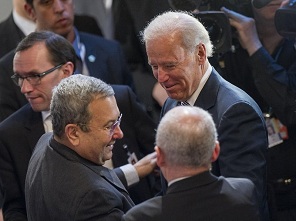German politicians, media seek to criminalize opponents of war

Yet another apostle of peace: President Joachim Gauck, who was
a Protestant pastor in the GDR (right), visited his colleague Daniela
Schadt (left) and members of the Geneva cantonal government,
the St-Pierre Cathedral. (Photo: Jean-Christophe Bott)
In recent months, President Joachim Gauck has been calling quite openly for a more robust German military presence in the world. This attempted revival of German militarism has been decisively rejected by a majority of the population. Politicians, the media and the public prosecution department are now organizing a campaign against opponents of war and preparing to launch criminal proceedings against them.
In line with this, the Facebook posting of a hitherto largely unknown Left Party politician has recently come under attack. Last Monday, 28-year-old Brandenburg state parliament deputy Norbert Müller referred to criticism of Gauck’s war policies made by a number of church pastors, and wrote on his Facebook page: “Some remain true [to their faith]. Others become federal presidents and obnoxious warmongers.”
The posting was seized upon by numerous media outlets and condemned for “defaming the president”. Such a denigration is a criminal offence in Germany, which—under Section 90 of the Criminal Code and on authorization of the federal president—can be punished with imprisonment for a term of between three months and five years. A spokesman for the Potsdam public prosecutor told Spiegel Online that the authorities were reviewing the case. On Wednesday, Gauck then sent word that he had not authorised the prosecutor to initiate proceedings.



























